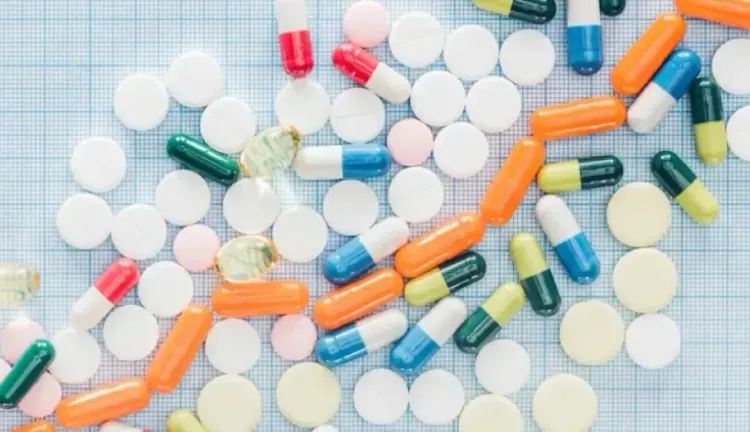Indian Pharmaceutical Firms Poised to Gain Market Share Amid US Tariff Changes

Synopsis
Key Takeaways
- Indian pharma firms could benefit from US tariffs.
- Manufacturing relocation to the US is unlikely.
- Higher tariffs could lead to increased drug prices.
- Biosimilars may remain exempt from tariffs.
- Challenges exist for US manufacturing growth.
Mumbai, March 28 (NationPress) Indian pharmaceutical firms may benefit from an increase in market share driven by the anticipated effects of US tariffs, as highlighted in a JPMorgan report.
The report suggests that Indian pharma companies hold the potential to expand their market presence at the cost of their global rivals, owing to their enhanced cost-effectiveness.
In a recent expert discussion, the brokerage noted that the relocation of manufacturing operations by pharmaceutical companies to the US is unlikely, mainly due to elevated tariffs.
Tariffs exceeding 25 percent on pharmaceuticals are deemed improbable, as they would significantly inflate consumer prices and limit the availability of alternative suppliers.
In scenarios involving a 10 percent tariff, a large share is expected to be transferred to consumers due to steady demand for medications.
The remaining tariff burden is likely to be absorbed either by manufacturers or Pharmacy Benefit Managers.
Since manufacturers' pricing contracts generally hinge on the landed cost of drugs, this supports the probability of a greater pass-through to consumers.
The anticipated tariff hike is expected to cause an increase in drug prices and, in the medium term, a rise in insurance premiums for patients in the US. If these tariffs are maintained, larger Indian pharmaceutical firms may consolidate to bolster their bargaining power; however, exiting the market remains unlikely, according to the brokerage.
JPMorgan also believes that biosimilars will probably remain exempt from tariffs. With the US relying on imports for 70 percent of these products due to limited domestic manufacturing infrastructure, imposing tariffs on biosimilars could lead to a swift and significant rise in costs for patients, as pointed out in the report.
Concerning Contract Development and Manufacturing Organisations (CDMOs), the report states that tariffs on Active Pharmaceutical Ingredients or intermediates are unlikely.
This would raise the cost of producing formulations within the US. Nonetheless, if tariffs are enforced on CDMOs, these firms are expected to pass the costs onto their customers. While the US administration seeks to reduce import reliance, especially for essential medications, and promote local production, the report indicates that tariffs may not prompt a shift in manufacturing.
It identifies several obstacles to such a transition, including higher manufacturing costs in the US, which are estimated to be about 75 percent greater for small molecule drugs than in China or India. Additionally, the stringent environmental compliance requirements in the US and the globally distributed nature of existing pharmaceutical manufacturing operations complicate matters. The time required to establish an API or formulations manufacturing facility is also impractical.
Besides India, the report suggests that import tariffs on generic drugs from Israel and Switzerland are quite likely, given the substantial manufacturing presence of Teva and Sandoz in these regions.
According to the report, these companies operate with thinner profit margins compared to Indian counterparts and would therefore be more adversely affected by tariffs.









